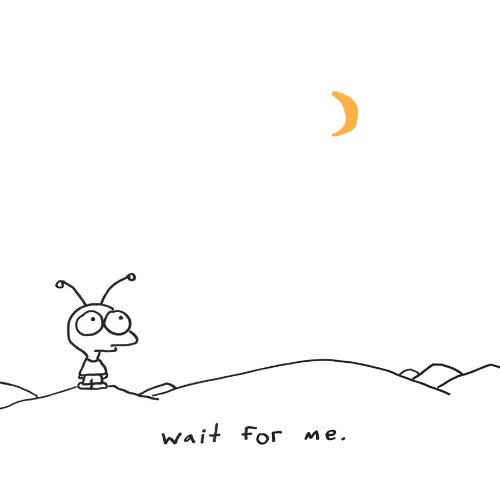
Moby
Wait For Me
Release Date: Jun 30, 2009
Genre(s): Electronic
Record label: Little Idiot/Mute
Music Critic Score
How the Music Critic Score works
Album Review: Wait For Me by Moby
Fairly Good, Based on 9 Critics
Based on rating 9.0/10
The Melville Scion weighs in with quiet, contemplative masterworkAt this stage of Moby’s lengthy career, it would be easy (and somewhat logical, given that he’s long past his hipster-culture sell-by date) to write him off entirely. But man, would you come to regret your haste, because on his ninth full-length, Wait for Me, the man born Richard Melville Hall has assembled an ambient composition every bit as compelling as Everything Is Wrong or his 1999 high-water mark, Play. A decade after the work that introduced the masses to Moby’s genius (every Play track was eventually licensed for use in films, ads and TV soundtracks), he’s releasing his most intimate, heartfelt material to date.
Based on rating 7/10
Moby's most unified and understated album, and all the better for it, Wait for Me is a morose set of elegantly bleary material, quite a shift from the hedonistic club tracks of Last Night. Dominated by instrumentals, "Shot in the Back of the Head" is the most evocative of the bunch, seemingly pulled from an unreleased David Lynch film scored by the Afghan Whigs circa Gentlemen -- a lament from a dustbowl, full of mournful slide guitar and dewy electric piano. Other than "Mistake" -- a glum neo-post-punk rave-up that, despite its cathartic release, remains downcast -- Moby leaves the vocals to a series of women (neighborhood chums, apparently) who each contribute to one song.
Based on rating 7/10
Something terrible seemed to happen once Moby realized that he made music that people actually wanted to hear: He started making music for those people. Moby’s early career was defined as that of an electronic artist who couldn’t be boxed in. Whether writing a techno album, or an ambient album, or even a punk metal album tinged with stabs of ambient music, there was an unpredictability and an earnestness about him that made him appealing to those who found him.
Based on rating 6.5/10
Moby's music has always seemed to carry a note of the wistful, at times bordering on morose. Partly this may be due to his source material -- he has, of course, made a name for himself by bringing gospel, blues, and soul into the realm of electronica. But even considering this, he is a man who seems to heft more than his fair share of the weight of the world.
Based on rating 3/5
Ten years after Play's gazillion-selling fusion of roots and electronica, yes, he's still plugging away, swapping the frenetic disco of 2008's Last Night for a more cultured sound..
Based on rating 3/5
Recorded in his Manhattan flat and released on his own label, Wait for Me often allows Moby's vocalist pals from the Lower East Side to take the spotlight on a contemplative collection. The big dance beats of 1999's Play have given way to quieter, pattering drumming, or sometimes no beats at all. Some tracks sound built for meditation; others are almost religiously beautiful.
Based on rating 5.4/10
One of the nice things about being a decade past your commercial (and arguably artistic) peak is that you can discover what turns on your true fans. The post-rave cultural context that made his 1999 record Play a worldwide smash feels more distant than ever, but Moby has yet to stop reliably cranking out a new LP every few years. (Wait For Me is actually his second in the last two.) This consistency makes you assume that somebody's still anticipating the latest post-chill out communique from the world of Richard Melville Hall.
Based on rating 5/10
As far as artistic relevance goes, Moby has been virtually inactive for nearly a decade. Much of this indifference wasn’t his fault. So the guy became a poster-boy for selling out… but selling out from what, obscurity? It isn’t as though Moby was taken seriously by electronic purists in the first place and besides, this was the 90s; a period of decadence that the 80s is credited with but the 90s pushed to the brink.
Based on rating C-
Electro-savant Moby has spent two decades waking people up: from his hi-NRG techno beginnings through 1999’s party starter Play up to 2008’s funky, underrated Last Night. Wait for Me, however, seems primarily designed to put people to sleep. Reportedly inspired by oddball director David Lynch and his passion for Transcendental Meditation, the album collects 16 droopy, drowsy, mostly instrumental tracks of gauzy piano and somnambulant? murmurings, only a very few of which (the mournful title track, the ominously lovely “Slow Light”) exhibit a pulse.

